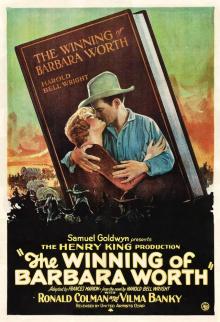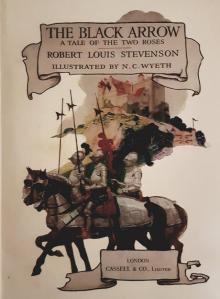The Winning of Barbara Worth


Author: Harold Bell Wright
Category: Fiction
Published: 2004
Series:
View: 486
Read Online"The secret of [Harold Bell Wright's] power is the same God-given secret that inspired Shakespeare and upheld Dickens."
--Philadelphia Sunday Dispatch
"It is this almost clairvoyant power of reading the human soul that has made Mr. Wright's books among the most remarkable works of the present age."
--Oregon Journal
The eastern plains of Colorado hold many secrets, including the origin of an orphaned four-year-old girl found near her dead mother by five weary travelers. One of the five, financier Jefferson Worth, decides to adopt the girl, who calls herself "Barba," and his life will never be the same.
The fates of Barbara and the plains are inextricably linked, and in turn, they profoundly alter the destinies of all the men, especially that of Jefferson Worth. The once cold and calculating businessman sees himself through the eyes of his adopted daughter--and has an epiphany in which he realizes his position and obligations in life.
Originally published in 1911, with a first printing of 175,000 copies, this moral fable of the ministry of capital remains extremely relevant.
--Philadelphia Sunday Dispatch
"It is this almost clairvoyant power of reading the human soul that has made Mr. Wright's books among the most remarkable works of the present age."
--Oregon Journal
The eastern plains of Colorado hold many secrets, including the origin of an orphaned four-year-old girl found near her dead mother by five weary travelers. One of the five, financier Jefferson Worth, decides to adopt the girl, who calls herself "Barba," and his life will never be the same.
The fates of Barbara and the plains are inextricably linked, and in turn, they profoundly alter the destinies of all the men, especially that of Jefferson Worth. The once cold and calculating businessman sees himself through the eyes of his adopted daughter--and has an epiphany in which he realizes his position and obligations in life.
Originally published in 1911, with a first printing of 175,000 copies, this moral fable of the ministry of capital remains extremely relevant.
 The Black Arrow: A Tale of Two Roses
The Black Arrow: A Tale of Two Roses The Other Mother
The Other Mother The New Normal
The New Normal Sic Semper Tyrannis ! - Vol. 53
Sic Semper Tyrannis ! - Vol. 53 The Sea Close By
The Sea Close By Alamut
Alamut Neon Sands Trilogy Boxset: The Neon Series Season One
Neon Sands Trilogy Boxset: The Neon Series Season One Lace & Lead
Lace & Lead